"Ethnic Cleansing, Not Deportation": The Plight of the Afghans in Pakistan
As Pakistan expels millions of ethnic Afghans, many born on Pakistani soil, activists say the State is acting indiscriminately and illegally, often based on ethnicity.
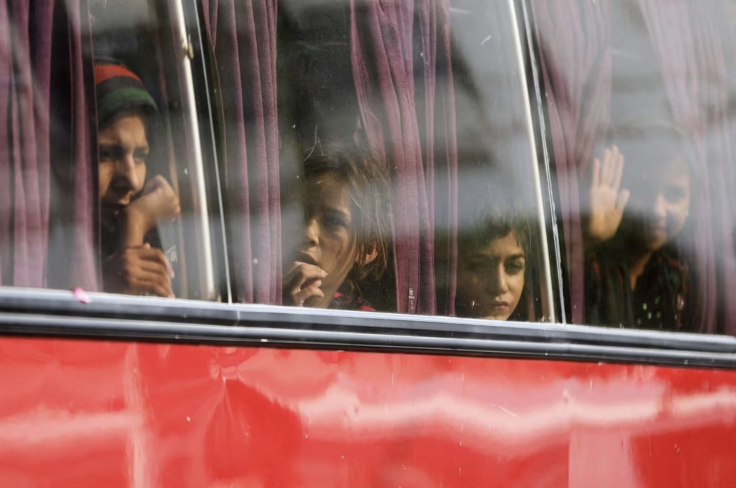
In the mid-2000s, I was a University student in the United States. One year I flew back from Pakistan to JFK in New York. My cab driver happened to be an Afghan. As we talked, I was taken by surprise. He seemed to dislike Pakistan, at least the Pakistani state.
Dare I say my first instinct was to be a little defensive. After all, we housed millions of Afghan refugees despite the various challenges – drugs, guns, crime – that they brought with them.
This is a sliver of a common attitude within Pakistan towards ethnic Afghans.
Never mind that the Taliban of today arose from the Afghan Mujahideen ("crusaders") recruited initially in the 80s in the fight against the Soviets - propped up, trained and armed by the United States via Pakistan, according to the Council on Foreign Relations.
Never mind that we have a direct role in the creation of millions of Afghan refugees.
On 31 October, a bulldozer was pictured razing an Afghan refugee camp to the ground in Islamabad, in a scene reminiscent of the flattening of Palestinian homes to make way for illegal Israeli settlements.
For a country whose ambassador to the United Nations recently spoke so eloquently in defence of the Palestinians in Gaza, Pakistan's current crackdown against Afghan refugees is jaw-dropping. It is just a few steps shy of Israel's brutality against the Palestinians – a point that was made by most of the people I spoke to on this issue.
In early October, the caretaker government in Islamabad stated that all undocumented foreigners illegally residing in Pakistan had until 1 November to leave the country. The target: Afghan refugees living in Pakistan.
This deadline has recently been extended to the end of the year for those who possess documentation, as human rights groups scramble to save as many as they can. However, not only is that extension omitting a great number of the vulnerable but it is also too late for the 280,000 who have already crossed the border, according to the United Nations High Commissioner for Refugees (UNHCR).
Many of them know no other home besides Pakistan. They were born on Pakistani soil. In many cases, Urdu is their first language – they might not even speak Pashto or Dari. They are, as my interviewees explained to me, Pakistani in every way, including under the law.
Pakistan is currently host to about 4 million Afghans. 2.4 million of them have some form of approved government documentation. The government has stated that 1.7 million Afghan nationals currently in Pakistan have no paperwork at all.
In addition, as my interviewees told me, the crackdown is indiscriminate and seems to be based on ethnic lines rather than paperwork.
Amongst my interviewees were representatives of a particularly vulnerable group of Afghan refugees: Afghan Christian converts now residing in Pakistan.
Their plight demonstrates how thoroughly Afghans have been let down by every nation with a hand in the "Great Game" 2.0 that has been afoot in Afghanistan since the US invasion of 2001.
After being made to believe by the US-led coalition that fundamental rights and freedoms were things within their grasp – the right to practise any religion, to work, for men to shave off Taliban-mandated beards, for women to shed Taliban-mandated burqas – it was back to square one for the Afghans a generation later.
The coalition left them in the hands of the very same Taliban it had come to "liberate" them from.
Lest we forget, in this season of remembrance, these supposedly iron-clad freedoms were paid for with the blood of Afghans: 116,000 as of November 2022 including police, army and civilians – a number that is widely acknowledged to be an underestimate.
Pakistan's official stance is that the deportations are a response to increasing cross-border terrorism emanating from Afghanistan. Quite apart from the veiled racism of equating all ethnic Afghans to terrorists, this position is also a stunning abdication of responsibility.
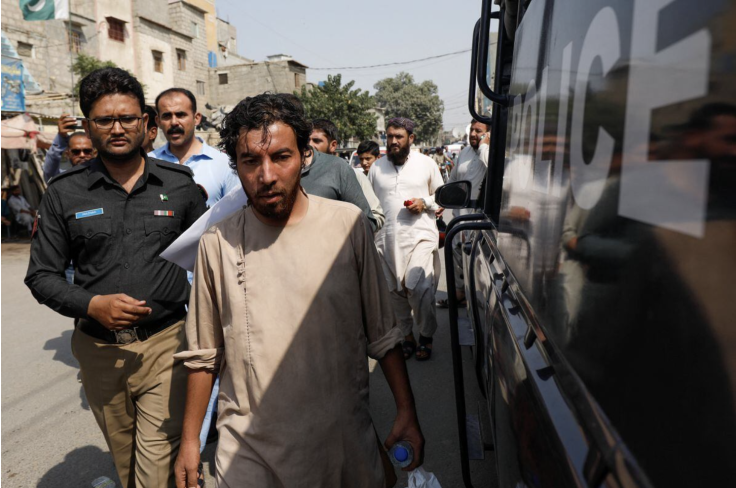
Jibran Nasir, a Pakistani lawyer and human rights activist, is one of several petitioners urging the Supreme Court to halt the deportations.
Nasir said: "This is unlawful deportation against birthright citizens and against legitimate asylum seekers with pending applications – and it affects Afghans who came here in all the different waves – in the 70s and 80s as well as in the 2000s. Their fundamental rights are being violated."
What Nasir alludes to here is the provision under the Citizenship Act 1951, in Section 4, which states that any individual born on Pakistani soil, irrespective of the provenance of her or his forebears, is a Pakistani citizen.
Nasir goes on to explain further grounds to doubt the legality of the government's actions, saying: "What makes the decision curious is that this is a caretaker set-up. We take the view that the caretaker government does not have the constitutional backing to make these decisions."
This is particularly salient in an atmosphere of wide-ranging political crackdown since 9 May, when protesters from the opposition Pakistan Tehrik-e-Insaf (PTI) stormed the residence of the Lahore Corp Commander - inviting the iron-fist of the mighty military establishment.
The caretaker government, which bridges the gap between elected governments in Pakistan, has been in office since 14 August.
After much dithering, elections are slated for 8 February – a long layover for 241 million Pakistanis to have no representative government.
Who is behind one of the most stunning reversals of established policy in this generation, with the country still in the waiting room of democracy, is not hard to guess.
"Ethnic Cleansing, not Deportation"
Victor Luke is a paralegal studying to be a lawyer. He is also a human rights activist. Luke is Christian and much of his work centres around aiding the oft-persecuted Christian minority in Pakistan. His passion for the subject radiates down the phone line.
Specifically, he says the government's crackdown on Afghans is indiscriminate and goes well beyond the former's stated purview of targeting "undocumented" people only.
"There is no discernment policy – under the garb of 'illegal immigrants', you are expelling birthright Pakistani citizens whose ethnicity is Afghan. This is ethnic cleansing, not deportation!" Luke said. "You are eradicating an entire people solely on the basis of their ethnicity – just because their faces, their language, their background is a bit different to you."
Luke also explains that the police's indiscriminate raids put in danger those who are awaiting the processing of their applications by the UNHCR or by foreign embassies that promised to look into asylum claims.
Nasir gives examples of particularly high-risk individuals. He said: "People who belong to the media or were interpreters for the US coalition, or artists such as the Association of Afghan Singers [a women's singing group who came to Pakistan after the fall of Kabul in 2001] – these people have established profiles.
"Some diligence could have been expected from our government given that people's life and liberty are at risk."
Luke explains why Pakistanis of all stripes should pay attention: "The most grave concern for all Pakistanis is that there is an arbitrary detention policy," he said. "You are expelling your own citizens based on race. This is a concern for Sindhis, Pashtuns, Punjabi Muslims, anyone."
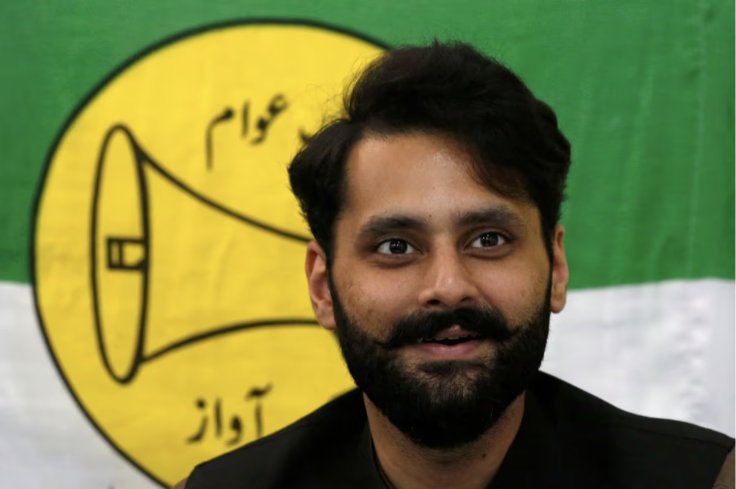
Referring to his own identity, Luke said: "What is to stop any government in future from saying, 'all Christians go to the West'? I have nothing to do with the West!"
"Or even if they tell me, 'go to Punjab (my grandfathers were Punjabi)'. I would be lost – I've never lived in Punjab!" Luke, who is based in Karachi, fumes. "So you see, this (Afghan policy) is a nonsensical policy."
Luke hones in on the policy disarray, saying: "If a father came here as a refugee and he now has a son born in Pakistan (a very common scenario), how can the state retain a three-year-old whilst sending his parents away? Or force the Pakistani citizen to leave his country in order to accompany his father?"
He observed: "This is no different to Trump's policies of separating Mexican immigrant parents from their American-born children."
The atmosphere of fear that this arbitrary detention policy has invoked is further detailed for me by another Christian human rights activist, Mrs Sijal Shafique.
Shafique, who has helped Afghan refugees, including Afghan Christian converts, find shelter since the fall of Kabul in 2001, said: "The police are taking people who were born on Pakistani soil, who have a National ID Card. We have also heard reports of Proof of Registration (POR) cards being torn up."
POR cards are proof of legal domicile for many Afghans in Pakistan but do not confer permanent residence.
Shafique continued: "You might be out for a walk, you might not have your POR card in your pocket – the authorities will say, 'Come with us'."
"Police have started to raid homes and pick up little kids from the streets - little children forced to make a living as garbage collectors – and detain them."
Shafique recalls helping girls who were trafficked to Quetta by a man purporting to be a Christian pastor. The girls were locked up by this man, who was clearly Muslim, and abused psychologically and physically.
Safa (not her real name) is a 23-year-old Afghan woman who crossed the border into Pakistan with a friend, after the fall of Kabul two years ago.
She is a Christian convert who left her family behind – they did not convert. She described how the 20-year presence of international aid agencies inside Afghanistan led to a small but flourishing Christian community in the country. After that period of hope, the return of the Taliban put converts, whom the former view as apostates punishable by death, in particular danger.
She now finds herself with a roof over her head, but with no right to study or work – after undergoing a harrowing ordeal on a journey across the border, through Quetta, and onwards into Pakistan.
"I went to university in Afghanistan. I was playing a sport. I was studying. It was my first semester in university when the Taliban came back into power in Afghanistan.
"I cannot do anything in Pakistan at the moment," she said, as she would ideally like to study or work, "(but) I was in a good situation before this government announcement. It was safe. At least we had shelter, we had food, a place to live."
Safa is one of those who do not have documents. However, there is no doubt that by sending someone like Safa back, Islamabad would be in breach of international law.
Specifically, Pakistan would be in breach of the international principle of non-refoulement, which says states are forbidden from returning asylum-seekers to a country where persecution likely awaits.
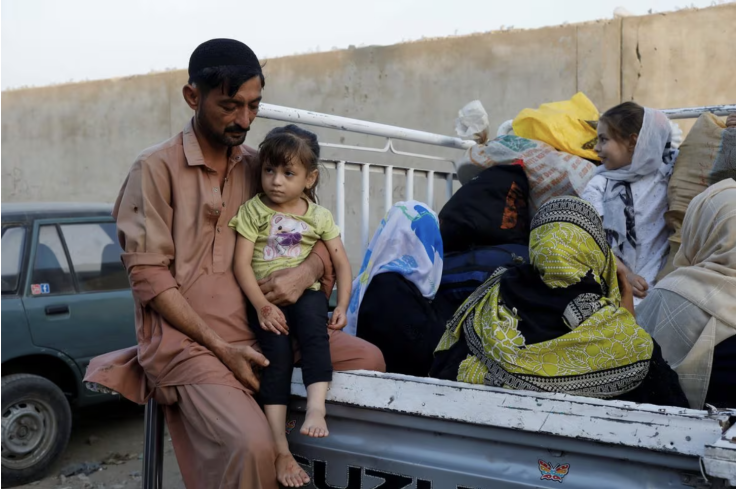
Shafique lists many cases of vulnerable Afghans that she is acquainted with personally.
"The breadwinner of one family I know used to serve as a combat medic. He was decorated by the United States. His threat level is extreme – he cannot go back," Shafique emphasised.
"Some people already had to go back," Shafique said, mentioning in particular a young man who is a Christian convert who was forced to return.
"He was stopped and searched by the Taliban. His phone was searched. He had hidden a copy of his baptism certificate in his phone. He was afraid they would find it, but they did not. He needs the certificate to prove his identity (should he be able to escape one day and leave Afghanistan)."
The petitioners to the Supreme Court had their application thrown out recently as "not maintainable". Jibran Nasir took to the social media platform X to voice his frustration.
Nasir's assessment was that the Supreme Court registrar had returned the petition by "copy-pasting objections... without any application of mind".
The Supreme Court's brief response states that the petition fails to demonstrate "what questions of public importance are involved... with reference to enforcement of any Fundamental Rights".
What can be more fundamental than extending protection guaranteed under international law to refugees the State of Pakistan had a role in creating, is hard to fathom.
Déjà Vu: History Repeats Itself
Neither is this the first time that the Pakistani state has fallen short in the treatment of stateless persons to whom it owes a direct responsibility.
As Asad Rahim Khan writes in the Pakistani daily, Dawn, after the fall of Dhaka in 1971, Pakistan abandoned hundreds of thousands of Urdu-speaking Bihari loyalists in the newly created state of Bangladesh.
Pakistan simply stated that any persons remaining in Bangladesh after 16 December 1971, the eve of the fall of Dhaka, would "cease to be citizens of Pakistan". Repatriation efforts in the decades that followed were minimal.
This included many Biharis who rejected offers of Bangladeshi citizenship at the time and sought refuge with the International Committee of the Red Cross, waiting for repatriation from the Pakistani government that never came. It was only in 2008 that the Supreme Court of Bangladesh ended the statelessness of these people.
Luke pointed out to me that his fellow petitioners to the Supreme Court make up a diverse cross-section of Pakistani society: amongst them are representatives of the mainstream centre-right political party, its centre-left opposition, religious parties, a Pashtun nationalist and so on.
When Maulana Fazlur Rehman, the chief of the religious Jamiat-e-Ulema-i-Islam, which enjoys some support in the Khyber-Pakhtunwa province that borders Afghanistan, sounds like the voice of reason, the government should take pause.
Fazl, as he is commonly known in Pakistan, sounded ever a statesman as he implored the government to give its Afghan counterparts time to mature. He even demanded the presence of international human rights observers – though scant attention is being paid, as those who abandoned the Afghans to their fate have moved on to new projects.
That Pakistan's actions today recall what is, without a doubt, the darkest chapter in Pakistan's oft-chequered history ought to give the state and its citizens pause.
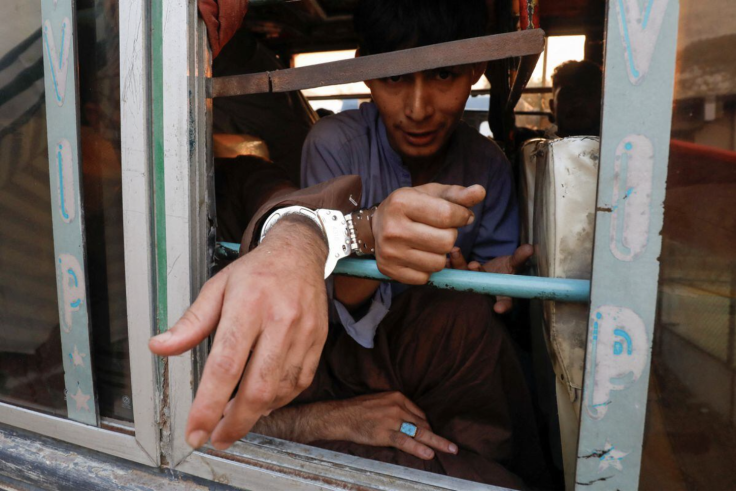
Instead of taking responsibility for its role in the statelessness of millions of Afghans, it is carting people off to a brutal regime. For their part, even the Taliban government in Afghanistan has opposed the policy, including the hasty implementation of it.
Nasir puts it in terms that the State may understand better than humanitarian appeals.
He points out that further deterioration of our poor standing in the immediate region will do us no favours.
"If tomorrow Pakistan were subject to a catastrophe (and needed the assistance of its neighbours), we only have three borders. India will not be welcoming," he said, wondering to whom we plan to turn. "The State should think of the long-lasting impact of our foreign relations and security."
Of Elephants and Humans: Natural Principles of Justice
As Victor Luke puts it, there are certain "natural principles of justice, even if they are not enunciated in Pakistani law – things that are just fundamental human rights. If our policy violates these... the conclusion is that Pakistan is turning into a fascist state".
Luke drives this point home, emphasising that by precedent, even animals have these fundamental rights in Pakistan. "Even those sentient beings..have those fundamental rights set out in the first part of the constitution" he quotes from the judgement of the Islamabad High Court in the case of Kaavan, the mistreated elephant in the Marghazar zoo in Islamabad. Kaavan was relocated to a sanctuary in Cambodia.
"Even if human beings are illegal immigrants, they do have rights. You cannot just fling them out."
The scene of a young Pakistani boy, an ethnic Afghan not more than ten years old, embracing his classmates as he prepared to leave the country, should haunt all Pakistanis into eternity - better yet, it should inspire us to protect those we can and demand that the wrongs committed already are reversed.
© Copyright IBTimes 2025. All rights reserved.






















